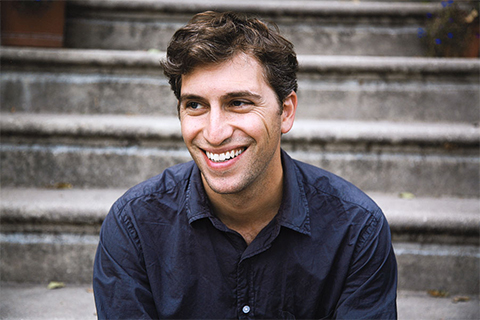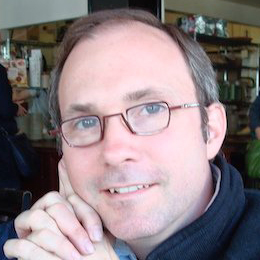“It might even have been that squirrel,” Andrew Blum (MA 2002) jokes. The first-time author is having lunch on a restaurant patio in Brooklyn, New York, right near his house, and a grey squirrel is running along the fence, making indignant noises. A squirrel in this neighbourhood chewed through the casing on the wires outside Blum’s apartment and severed, for a day or so, the busy tech and design journalist’s connection to the Web. “Here was the most powerful information network ever conceived . . . stymied by the buckteeth of a Brooklyn squirrel,” he writes.
Thus was born the idea which became Tubes: A Journey to the Center of the Internet (HarperCollins, 2012), in which Blum follows one tube-encased wire to the next, seeking to come to grips with the Internet’s physical existence. “We’re so used to thinking of it as a non-thing, as this cloud,” he says. “It seems silly, but I said to my editor at Wired we should do something about the wires.”
For the book, Blum interviewed some of the farflung people who make the Internet go – übergeeks attending a tech conference in Austin, Texas; businessmen in Amsterdam and Frankfurt jousting for bragging rights as owners of the most frequented (physical) Internet hubs in the world. He traveled from the place where the main transatlantic cable surfaces off the coast of Cornwall to the massive data-storage facilities run by Google and Facebook in mountainous hamlets in the Pacific Northwest. Always the former geography student, Blum found a reason why things were located where they were: already well-wired Western Europe had the right tech-meets-business culture to foster the explosive growth of hubs; busy servers generate copious heat, so why not put the Google storage centres where the outside air is cool, and can be pumped through the facility? “I learned that geography was destiny, even on the Internet. Where you are matters.”
Read the prologue to Tubes: A Journey to the Center of the Internet below.
Recent Posts
Tuning into Tomorrow
AI can help musicians compose and create new sounds. Is it just another music-making tool – or something else?
U of T’s 197th Birthday Quiz
Test your knowledge of all things U of T in honour of the university’s 197th anniversary on March 15!
Are Cold Plunges Good for You?
Research suggests they are, in three ways






